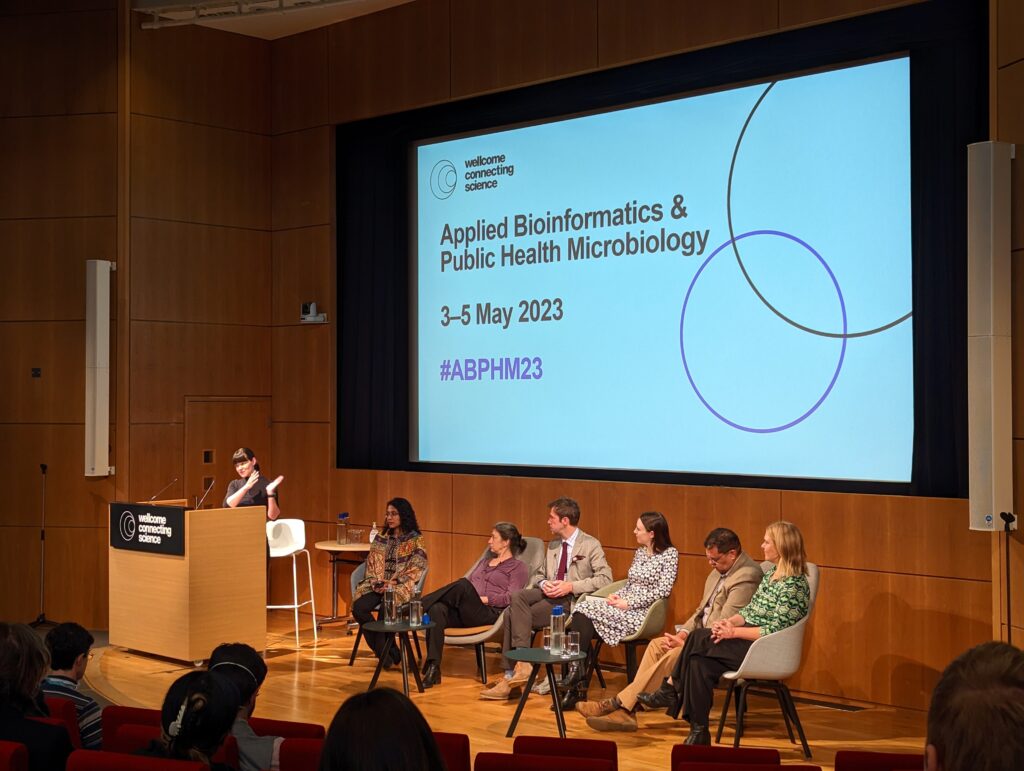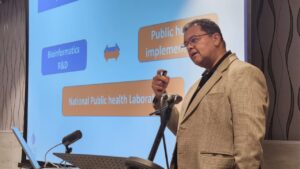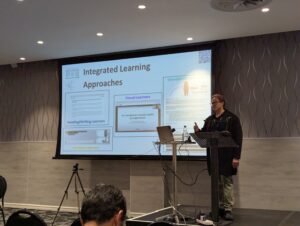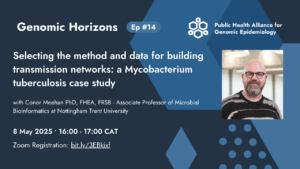
During a thought-provoking session at the recent ABPHM conference organised and funded by Wellcome Connecting Science, several esteemed researchers, led by Jen Jennifer Gardy from the Bill & Melinda Gates Foundation, USA, shared their perspectives on the COVID-19 pandemic. The panel, which included Alan Christoffels, Emma Hodcroft, Julie Segre, Josefina Campos and Bill Hanage, engaged the audience with interactive polls and addressed critical questions surrounding pandemic preparedness, mitigation measures, and the impact of genomics
Pandemic Preparedness: The Need for Early Intervention
The panelists emphasized the importance of early detection and intervention in addressing public health emergencies. Reflecting on the initial reports of atypical pneumonia in Wuhan on December 31, 2019, they highlighted the significance of identifying outbreaks of concern and intervening before they escalate into larger emergencies. They emphasized that outbreaks occur regularly, but not all of them evolve into significant public health concerns. Robust early detection mechanisms and intervention strategies are crucial in curbing the spread of infectious diseases.
Mitigation Measures and Societal Impact
The discussion delved into the lessons learned from the COVID-19 response, particularly regarding the implementation of mitigation measures such as border closures. The panelists acknowledged that some measures were implemented after the virus had already spread widely, highlighting the need for a well-defined legal framework and effective communication to ensure timely action. They stressed the importance of a strong bridge between infectious disease scientists and politicians, underscoring the value of collaboration and communication in pandemic response.
The Human Face of Public Health
The researchers emphasized the significance of considering the human impact of public health measures. While technological advances and scientific knowledge are crucial, it is essential to recognize the individual experiences and societal implications of these measures. The discussion touched on the importance of including social scientists in decision-making processes to ensure a holistic approach to pandemic response. Acknowledging the diverse challenges faced by different communities, it was highlighted that the need to balance health measures with societal well-being and consideration towards the psychological impacts of the pandemic.
The Role of Genomics in the COVID-19 Pandemic
Genomics emerged as a significant tool in the fight against COVID-19, particularly in understanding virus variants. The panelists highlighted the impact of data sharing, new intelligence derived from genomics, and the importance of robust sampling. They emphasized the collaborative efforts of scientists, resulting in the development of apps, websites, and tools for tracking lineages and sharing knowledge. The availability of millions of genomic sequences has expanded our understanding of the virus, enabling better planning and response strategies.
The researchers highlighted the need to capitalize on the technological and programmatic advances made during the pandemic. They emphasized the importance of training and strengthening national centers to ensure sustainable progress. With the collective expertise and collaborative efforts witnessed during this crisis, they expressed optimism about harnessing technological innovations to enhance accessibility and improve future response capabilities.
Closing remarks
The insights shared by these prominent researchers shed light on critical aspects of pandemic preparedness, mitigation measures, and the impact of genomics in the COVID-19 space. Lessons learned during this challenging time emphasize the need for early intervention, strong communication between scientists and policymakers, and a comprehensive understanding of the societal impact of public health measures. Genomics has played a pivotal role in understanding virus variants and guiding response strategies. Moving forward, leveraging technological advancements and collaborative efforts will further strengthen our ability to respond effectively to future public health challenges.
Jamie Southgate
PHA4GE Communications Team



